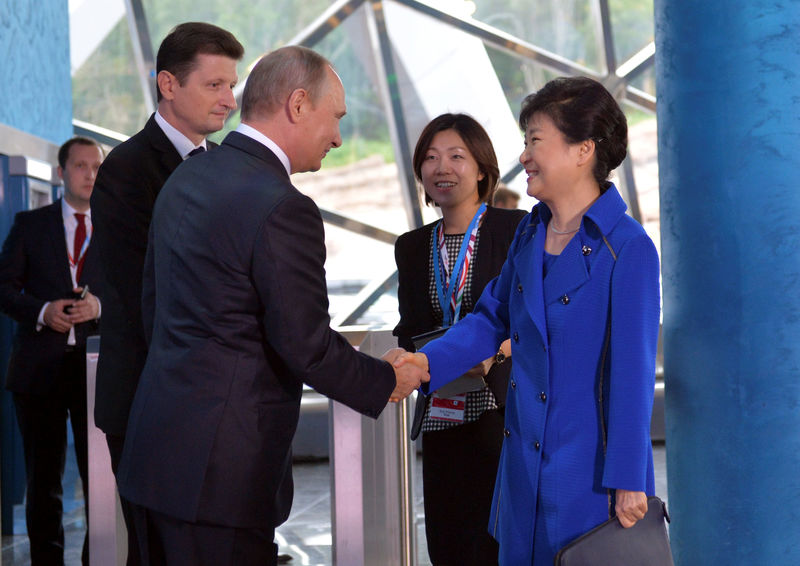By Kiyoshi Takenaka and Denis Pinchuk
VLADIVOSTOK, Russia (Reuters) - Japanese Prime Minister Shinzo Abe and Russian President Vladimir Putin on Saturday spoke of their joint resolve to settle once and for all a territorial row over a string of tiny islands that has marred ties for more than seven decades.
In a speech delivered at a business conference in the Russian port city of Vladivostok, with Putin in attendance, Abe urged Putin to work with him to solve the dispute.
"As the leader of Japan, I am firmly convinced of the correctness of the Japanese position, while you, Vladimir, as the leader of Russia, are entirely confident of the correctness of the Russian position," Abe said.
"Yet, if we continue on like this, this very same discussion will continue for yet more decades to come. By leaving the situation as it is, neither you nor I will be able to leave better possibilities to future generations."
Japan claims a string of Russia-controlled western Pacific islands, called the Northern Territories in Japan and Southern Kuriles in Russia.
The territorial row over the island chain, seized by Soviet troops at the end of World War Two, has upset diplomatic relations ever since, precluding a formal peace treaty between the two countries.
Putin said he was ready to take decisive steps to settle the dispute, though he cautioned that those steps could only be taken after careful preparation.
"The past should not be an obstacle to moving forward," Putin said during a question-and-answer session at the forum, where he shared the stage with Abe.
"We have to think how to get rid of problems which do not allow us to move forward."
"I hope that we can solve these problems. In order to solve them we of course need a level of trust. It's a tricky solution but we can achieve it."
On Friday, the Japanese prime minister held talks with Putin and agreed to have two more summit meetings by the end of the year to accelerate peace treaty negotiations.
"Vladimir, in order to carve out towards the future bilateral relations overflowing with unlimited potential, I am resolved to putting forth all my strength to advance the relationship between Japan and Russia, together with you," Abe said.
Abe's father, Shintaro Abe, worked to resolve the dispute in the 1980s as foreign minister.
Concessions over the islands would carry risks for Putin but could boost Japanese investment in Russia at a time when Moscow, battered by low global oil prices and Western sanctions, badly needs an injection of cash.

"The economies of Russia and Japan are not in rivalry. I am fully confident that ours is a relationship in which each complements the other in a magnificent way," Abe said.